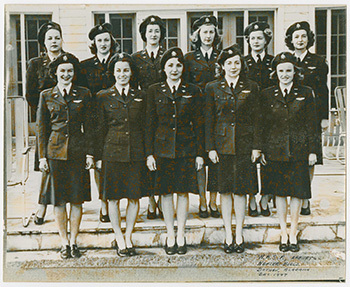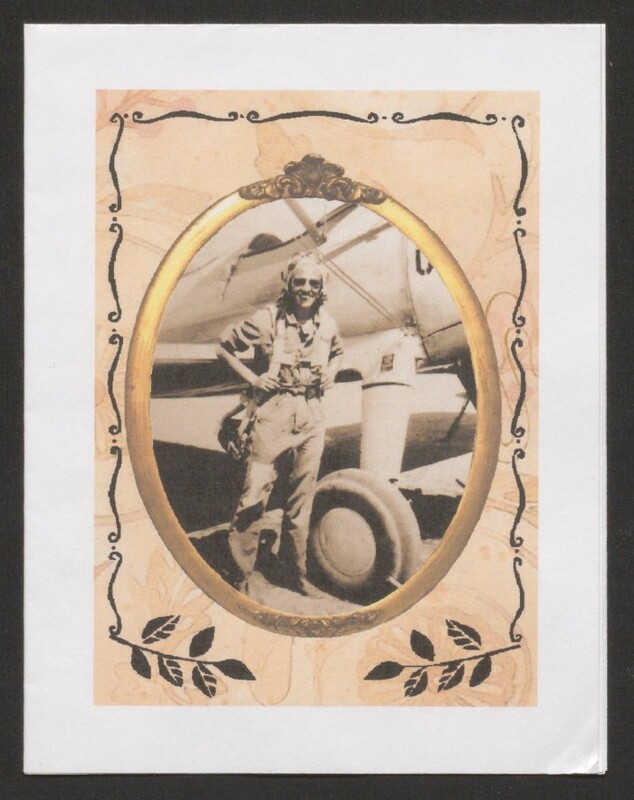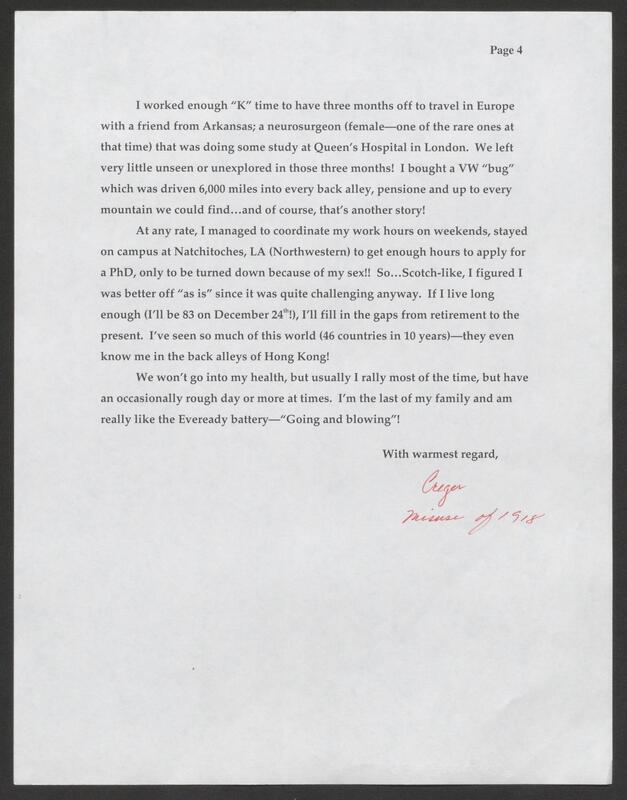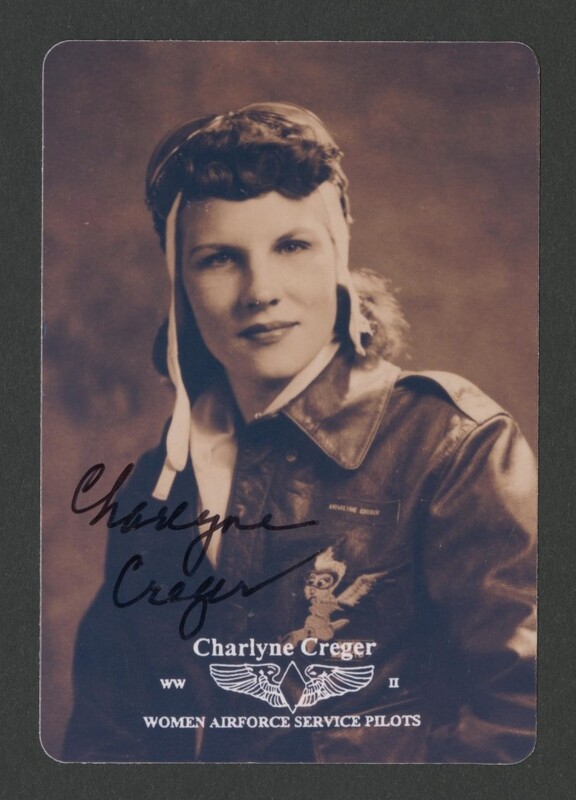WASP - Charlyene Creger, a superhero on many fronts!
The Women Airforce Service Pilots (WASP) were a pioneering group of civilian women pilots who flew military aircraft during World War II. They faced numerous challenges both during and after their service, including access to higher education post-service and lack of classification as a veteran. The WASP program was founded August 5th, 1943, and disbanded on December 20th, 1944. The political reason for the disbandment was that it was believed that women didn’t belong as pilots. WASPs were classified as civilians and did not receive military benefits, including access to the GI Bill or healthcare, which was initially only available to male veterans. Ms. Charlyene Creger was one of the few who answered the call.
The life of a legend..
Many WASPs faced financial constraints and a lack of recognition for their service, which hindered their ability to pursue higher education and meaningful careers. They often had to pay for their education out of pocket or seek alternative means of funding as they were not eligible for the GI Bill. During the 1970s, there was a growing movement to recognize the contributions of women in the military. WASPs and their supporters began advocating for official military recognition and the associated benefits.
Ms. Creger received flight training at Waco Army Air Field in Waco, Texas in 1944, ironically after her service as a WASP. She had previously earned her pilots license in 1943 and that was enough to get into the WASP program. Her love for flying continued as she flew for a salvage company out of Oklahoma City in 1945 before turning to nursing.
After the WASP disbandment, Ms. Creger once again answered the call to duty and became an Air Force Nurse during the Korean Conflict (1951-1952) where she was severely injured by a patient and medically discharged from the military.
Ms. Charlyene Creger finished her B.S. in Nursing at Northwestern State University in Louisiana and then applied to medical school where she was rejected based on gender, however she didn't let that stand in the way of obtaining her education! With that rejection, she headed to England and in 1964, finished her anesthetist training at St. Thomas Hospital, London, England. She went on to serve as an anesthetist for many years at LSU medical center in Shrevport, LA and then as Chief Anesthetist at Earl K. Long hospital in Baton Rouge, LA.
Of all of Ms. Creger's many accomplishments, the one she was the most proud of, the one that she credited her strength and resilience to, was being a WASP. It's for this reason, she fought for the National WASP and WWII museum in Sweetwater, Texas and it opened in 2005, much due to her efforts. Unfortunately, Ms. Creger passed away just 5 months before it officially opened.
Ms. Charlyene Creger is an inspiration to many, a woman doing things that were thought to be only for men, during a time of gender inequality. She persevered and accomplished a lifetime of service, she never married or had children, her legacy is that of a WASP and a nurse and a fighter.
Historical challenges and victories of WASP's
In 1977, after years of advocacy, Congress passed Public Law 95-202, which granted military veteran status to WASP's under Presidents Carter's administration. This law allowed WASP's to receive limited veterans' benefits, including access to Veterans Affairs (VA) educational programs.
- Public Law 95-202 deemed the service of certain groups of women, civilians, and foreigners who served the United States during World War II as active duty for purposes of eligibility for benefits administered by the Department of Veterans Affairs
Following the passage of Public Law 95-202, WASP's gained access to benefits that had previously been unavailable, including educational benefits like the GI Bill as well as access to veterans' healthcare, though it would be years fore the VA healthcare system developed plans and programs to serve women.
Womens access to veterans benefits, such as the GI Bill, provided a boost in enrollment since its inception in 1944 (Labaree, 2017). It also retrained women into fields previously thought to be for men only, such as STEM and health science related fields, further strengthening the workforce and economy.
The struggles Ms. Creger endured are not so far removed from the contemporary systems of today, historically we have seen education shift back and forth between public good and private good (Labaree, 2017). However, the power of education and resilience is evident in stories like Ms. Creger's. As we look to the future, let's not forget the impacts of education.
Over the years, continued advocacy efforts have ensured that WASP's received more recognition and benefits including medals, honors and eventually the opening of the WASP museum in Sweetwater, Texas. With or without access to veteran's benefits, many former WASP's pursued higher education, obtaining degrees and contributing to various professional fields. Their experiences and accomplishments have been documented and celebrated, inspiring future generations of women in aviation and the military as found in the Portal to Texas archives. The legacy of WASP's is now honored in various ways, including educational scholarships and programs that support women in aviation and military service. They are now honored as the brave women who conquered the air and answered a nations call to service during a time that was dominated by men.
References
A historical perspective [PDF]. (2018). Retrieved July 5, 2024, from https://www.va.gov/womenvet/docs/20yearshistoricalperspective.pdf
Charlyene Creger collection. (n.d.). The Portal to Texas History. Retrieved June 27, 2024, from https://texashistory.unt.edu/search/?fq=str_title_serial%3A%22Charlyne+Creger+Collection%22
Haub, A. (2024, March 14). Rosa charlyne creger 44-w-10. Retrieved July 5, 2024, from https://www.waspmuseum.org/wasp-in-the-spotlight/rosa-charlyne-creger-44-w-10/
Labaree, D. F. (2017). A perfect mess: The unlikely ascendancy of american higher education (1st ed.). University of Chicago Press.
Roulston, K., & deMarrais, K. (2021). Exploring the archives: A beginner's guide for qualitative researchers (qualitative inquiry) (6th ed.). Myers Education Press.




